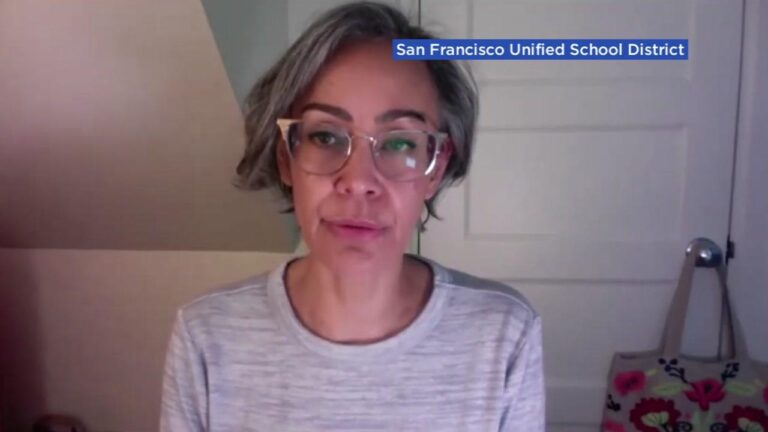Alison Collins’ Removal from San Francisco School Board: A Closer Look at the Controversy and Its Aftermath
Background: The Social Media Controversy Surrounding Alison Collins
Alison Collins, formerly the vice president of the San Francisco Board of Education, was ousted amid a storm of controversy triggered by resurfaced tweets she posted several years ago. These messages, widely criticized for their racially charged and divisive nature, ignited a fierce backlash from parents, educators, and fellow board members. Many argued that Collins’ remarks clashed with the school board’s commitment to diversity, equity, and inclusion, ultimately eroding public confidence in her leadership.
Key points from Collins’ tweets included:
- Implicit racial stereotyping: Comments that appeared to generalize students and families based on ethnicity.
- Targeted criticism of Asian American communities: Statements that were perceived as reinforcing negative stereotypes.
- Initial refusal to apologize: Collins’ hesitation to fully acknowledge the harm caused by her words intensified community tensions.
| Detail | Information |
|---|---|
| Tweet Timeline | 2016 to 2018 |
| Nature of Controversy | Racially sensitive language |
| Board Response | Removal from vice presidency |
| Community Reaction | Divided opinions with protests and support |
Consequences for School Board Leadership and Governance
The fallout from Collins’ tweets significantly influenced leadership dynamics within the San Francisco School Board. The controversy not only strained relationships among board members but also polarized the community, highlighting the powerful role social media plays in shaping public discourse and institutional accountability. Critics contended that the tweets detracted from the board’s focus on critical educational priorities and damaged its reputation, prompting swift action to restore trust.
This episode sheds light on several important considerations regarding digital communication in public service:
- Responsibility and scrutiny: Elected officials’ online behavior is subject to intense examination, affecting their legitimacy and effectiveness.
- Community engagement challenges: Social platforms can amplify both constructive dialogue and divisive rhetoric, complicating consensus-building.
- Policy development: The incident has spurred the board to revisit and strengthen guidelines governing social media conduct for its members.
| Impact Area | Result |
|---|---|
| Public Trust | Declined, with increased community polarization |
| Leadership Stability | Accelerated changes in board leadership roles |
| Policy Revisions | Implementation of stricter social media protocols |
Community Perspectives on Collins’ Dismissal
The decision to remove Alison Collins from her leadership role elicited a spectrum of reactions throughout San Francisco. Parents, teachers, students, and advocacy groups expressed a range of emotions—from relief and support to concern and division—reflecting the complex nature of the controversy.
Common themes voiced by community members included:
- Demand for openness: Calls for transparent communication from the school board to rebuild trust.
- Support for accountability: Many viewed the removal as a necessary measure to uphold ethical standards.
- Worries about increased division: Some feared the decision might exacerbate existing fractures within the school community.
- Emphasis on reconciliation: Leaders stressed the importance of healing and unity moving forward.
| Group | General Sentiment | Main Concern |
|---|---|---|
| Parents | Varied | Ensuring safe and inclusive learning environments |
| Educators | Generally supportive | Maintaining professionalism in leadership |
| Students | Mixed | Representation and campus climate |
| Advocacy Organizations | Critical | Promoting racial equity and leadership responsibility |
Guidelines for Public Officials’ Social Media Use
In an era where digital platforms are integral to public communication, officials must navigate social media with care to preserve public confidence and avoid controversies like the one involving Alison Collins. Recommended best practices include:
- Upholding professionalism: Communications should be respectful and considerate of all community members.
- Verifying information: Ensuring accuracy to prevent the spread of misinformation and maintain credibility.
- Clarifying roles: Distinguishing personal opinions from official statements to maintain transparency.
- Engaging respectfully: Avoiding confrontational exchanges and responding thoughtfully to feedback.
The table below contrasts problematic elements from Collins’ tweets with recommended conduct for public figures:
| Issue | Collins’ Tweet Content | Suggested Best Practice |
|---|---|---|
| Sensitivity | Remarks perceived as targeting ethnic groups | Respect cultural differences and avoid offensive language |
| Public Image | Comments viewed as divisive | Promote inclusivity and unity in messaging |
| Responsiveness | Initial resistance to acknowledging impact | Be receptive to criticism and willing to apologize when appropriate |
Final Thoughts: Lessons from the Alison Collins Case
Alison Collins’ departure from the San Francisco School Board’s vice presidency highlights the intricate challenges educational leaders face in the digital age. Her case serves as a cautionary tale about the lasting impact of social media activity on public trust and governance. As school districts nationwide grapple with similar issues, the emphasis on transparent communication, accountability, and respectful engagement remains paramount. The San Francisco community now looks ahead, hopeful that renewed efforts will foster healing and strengthen confidence in its educational leadership.




